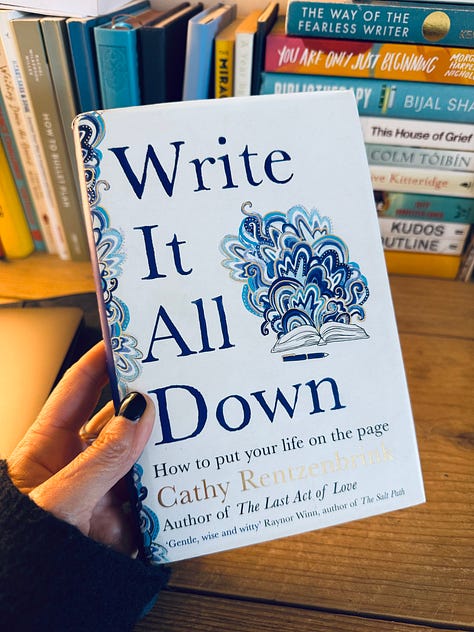
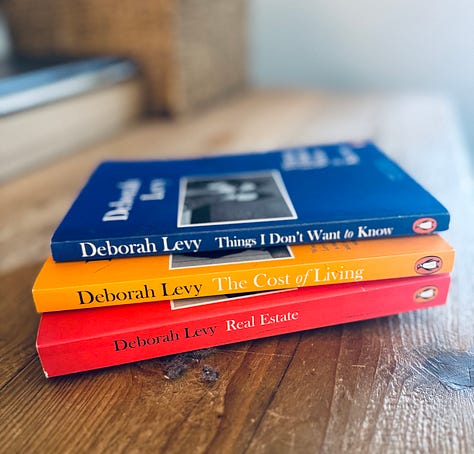
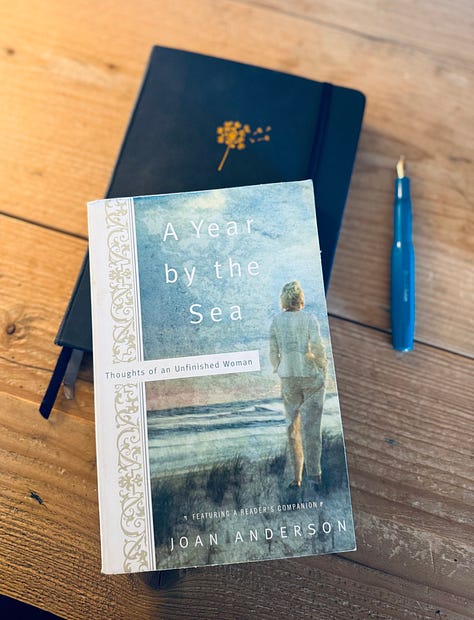
As it’s World Book Day today, I was thinking about the books that have become more than just reading material over the past 12 months, but ones that have been companions, teachers, mirrors and occasionally, life rafts. When I look at my favourite stack of books, (some with pencil markings, and a few with book marks sticking out proudly from the pages), that have made the deepest impact, I noticed a thread connecting them that I hadn’t fully appreciated until now.
These books found me exactly when I needed them, as the best books tend to do. They weren’t just read, they were experienced, absorbed, and ultimately, devoured. Some I’ve returned to multiple times, finding new layers with each visit, like conversations with old friends who somehow always have something new to say.
Deborah Levy’s Living Trilogy - gave me a masterclass in reinvention with ease
Deborah’s trilogy which includes “Things I Don’t Want to Know,” “The Cost of Living,” and “Real Estate,” reads like the most intimate conversation you’ve never had but so desperately needed. What struck me most, was Levy’s unflinching examination of the female experience at different life stages, particularly how she dismantles and rebuilds her life after her marriage ends.
In “The Cost of Living,” she writes about creating a new life with her daughter in a London apartment… “To become a person is a serious proposal. To become a woman is a serious proposal… I wrote on a mountain of yellow Post-it notes and slowly began to build another life.” There’s something profoundly moving about watching a woman in her 50’s deliberately constructing a life on her own terms, especially when society so often suggests women’s stories become less interesting with age.
I found myself underlining passages that articulated feelings I’d had but never named, about motherhood, creativity, the female gaze, and the radical act of taking oneself seriously as a woman. The trilogy sits permanently on my bedside table now, a reminder that reinvention is always possible.
Joan Anderson - gave me the permission to retreat
There’s something about Joan Anderson’s work, particularly “A Year by the Sea,” that feels like receiving permission, permission to step away, to reassess, to prioritise your own becoming. Anderson’s story of leaving her marriage temporarily to live alone in a Cape Cod cottage speaks to something many women feel but rarely voice: the need to reclaim oneself after years of being primarily defined through relationships and others.
What resonated most with me, is her honesty about the discomfort of this process. It’s not a romantic escapade but a necessary reckoning. “Sometimes we have to break a world to remake it,” she writes, and I’ve returned to that line repeatedly over the years when making difficult choices about my own boundaries and commitments.
Reading Anderson feels like having a wise friend who doesn’t flinch from the hard truths but helps you see the possibility on the other side of upheaval. Her work reminds me that retreating isn’t escaping, its strategic withdrawal to gain perspective.
Elizabeth Strout - taught me about the dignity of ordinary lives
Elizabeth Strout’s novels particularly “Anything Is Possible,” perform a kind of alchemy - transforming seemingly mundane lives into profound explorations of the human condition. What I love about Strout is her refusal to sensationalise; instead she illuminates the extraordinary that exists within the ordinary.
Her characters, often women in small towns navigating disappointment, family obligations, quiet ambitions, are rendered with such compassion that reading her words feels like developing greater tenderness toward my own imperfections. There’s a particular scene where a character who’s experienced trauma returns to her hometown and has a moment of connection with her brother. I’ve read it at least a dozen times, marvelling at how Strout conveys so much emotion in such restrained prose.
What stays with me is her insistence on the dignity of every life story, however seemingly small. After reading more books by Strout, I find myself paying closer attention to the people around me, wondering about their interior landscapes with greater curiosity and care. I’m reading “Tell Me Everything” at the moment, and I don’t want it to end. I just found out it’s been long listed for fiction for The Women’s Prize!
Cathy Rentzenbrink - gave me permission to be scrappy on the page
Her book “Write It All Down” arrived in my life precisely when I needed to be reminded of the transformative power of putting pen to paper. It’s basically a guide to life writing, but it functions equally well as a gentle manifesto for how writing can help us process, understand and sometimes transcend our experiences.
What makes Cathy’s approach so powerful is her emphasis on writing as a practice rather than just a product. “Writing isn’t just about getting published,” she reminds us. “It’s about making sense of our lives.” In a world obsessed with outputs and metrics, this perspective feels like a a mantra fit for any midlife woman.
Over the years I’ve incorporated so many of her prompts and exercises into my journalling practice, finding that they’ve often lead me to insights I wouldn’t have reached otherwise. Her book has become a kind of compass I return to whenever my writing feels stuck or disconnected from its purpose.
Maggie Smith - showed me how to shine a spotlight on beauty after devastation
“You Could Make This Place Beautiful” is perhaps the book that has moved me most deeply since it was published in 2023. Written in the aftermath of her divorce, it’s a memoir that refuses easy conversations about trauma and recovery. Instead, it sits with difficulty while simultaneously insisting on the possibility of beauty.
“Keep moving. Just keep moving,” she writes. “Even if you have to trick yourself into it at first.” There’s something so honest about her acknowledgement of how survival sometimes happens, one foot in front of the other, without grand epiphanies, until eventually you realise you’ve built something new.
What makes Smith’s writing so powerful is its refusal of toxic positivity while still affirming that devastation doesn’t get the final word. Her ability to hold contradiction, grief and hope, ending and beginning, has helped me navigate my own complex transitions with more grace and dare I write it… with ease.
The thread that binds them… looking at these books together, I’m struck by what they share, they’re all, in different ways, about women claiming their right to tell their own stories on their own terms. They’re about the messy, complicated process of building and rebuilding a life. They’re about finding beauty in difficulty without minimising how hard things can be.
None of these writers offer simple solutions or Instagram worthy inspirational quotes. Instead they provide something far more valuable…
COMPANY ON THE JOURNEY!
They say, in effect, “This is hard. You’re not alone. Keep going. Make it beautiful in your own way.”
Perhaps that’s why these particular books have become so essential to me this past year. In a world that often tries to simplify women’s experiences or reduce them to stereotypes, these writers insist on complexity, contradiction, and the ongoing nature of becoming. They remind me that my stories don’t follow a neat three-act structure with tidy resolutions. Far from it!
As I reflect with my books and my journal on World Book Day, I feel grateful not just for these books as objects, but for the conversations they’ve opened within me, the permission they’ve granted and the company they’ve provided. Books at their best don’t just tell us stories, they help us makes sense of our own.
In case you weren’t aware I have an upcoming Rest + Read with Ease retreat in June, with Lucy Pearson founder of The Literary Edit. We’ll be tucked away in one of my favourite beach houses on the west Wales coast. I love it because it’s the kind of place where the horizon stretches endlessly before you, where the boundary between sea and sky blurs on a misty morning, and where the only thing demanding your immediate attention is the story unfolding in your hands.
I’m collaborating with Lucy who is a writer, journalist and bibliotherapist, to create something that feels less like an escape and more like a return to ourselves, to the simple pleasure of uninterrupted reading, to the much needed rest that comes when we stop trying to optimise every waking moment of our existence. If it’s of interest you can read my recent newsletter about the gorgeous weekend it promises to be here Read + Rest with Ease
Until the next time
Take care and stay safe xx

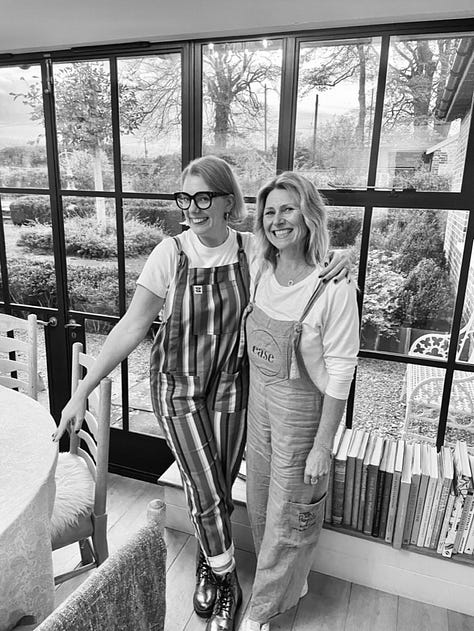
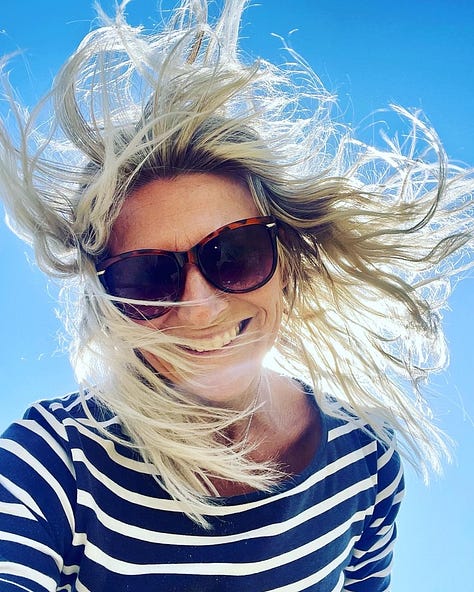
About me… I’m Tanya Lynch, a mother, a ridgeback owner and the founder of Ease Retreats. I love what I do, collaborating with authors and creatives, hosting retreats in beautiful venues across the UK. Most recently I became a certified bibliotherapist offering book prescriptions and launched The Bibliotherapists podcast with my co-host Toni Jones. I’m also a therapeutic journalling coach and through my programme ‘Rage on a Page’, I help midlife women channel their emotions into something more positive and creative in less than 60 days. Each Thursday I host an online journaling club ‘Journal with Ease’ and it’s free for paid subscribers to attend. If you have any questions about the benefits of therapeutic journalling, please reach out and connect. I’m usually on a beach walking the dogs, hosting retreats, writing in my journal or on Substack.





Not that I need any more TBRs but I do love this book-review style personal essay, thank you
Always love a good book rec list.